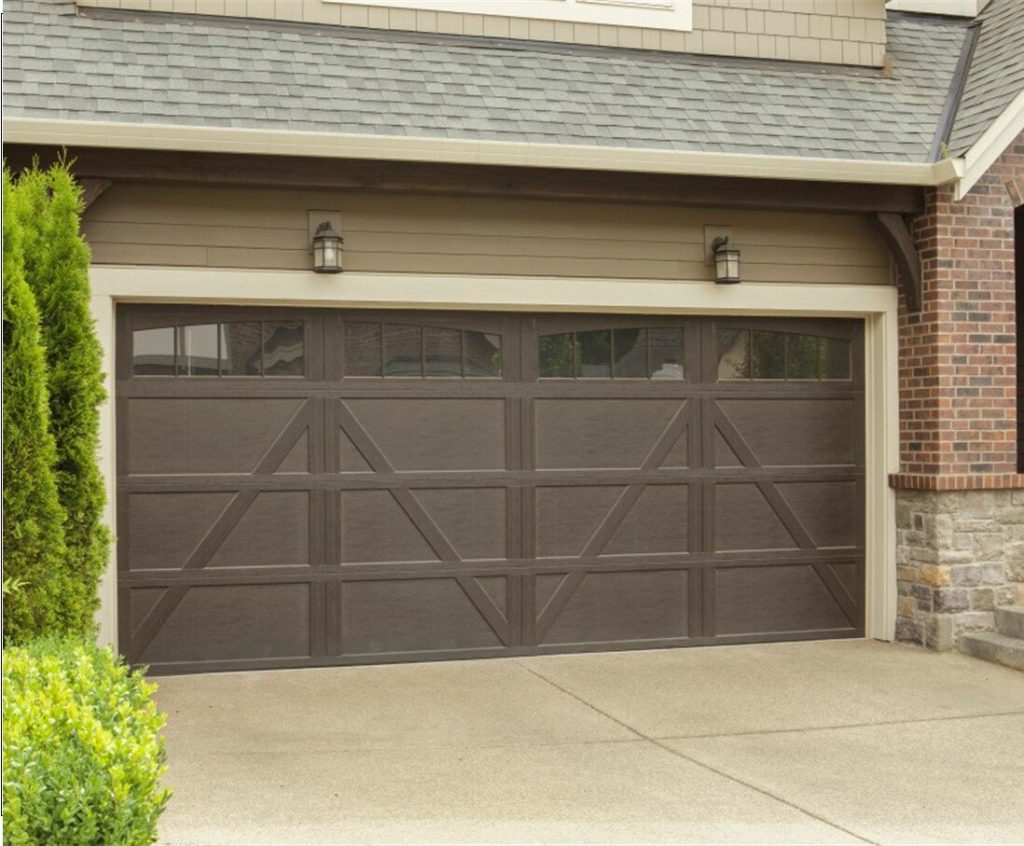Are you standing in front of a door, trying to determine whether it’s made of steel or aluminum? It’s a common question, and being able to identify the material is crucial for maintenance and understanding the door’s characteristics. But how can you tell? Well, in this discussion, we will explore several methods that will help you determine if your door is steel or aluminum. By examining the surface appearance, conducting a magnet test, considering the weight, and measuring the thickness, you’ll have a clearer idea. So, let’s dive into these techniques and discover the material of your door.
Surface Appearance and Rust Test
To determine if a garage door is made of steel or aluminum, you can perform a surface appearance and rust test. Aluminum garage doors typically have a smoother, matte finish, while steel doors have a slight texture or grain pattern. However, some finishes can mimic the appearance of the other material, so it’s important to inspect the door closely. Rust on the garage door indicates that it is made of steel, so look for rust spots, especially around edges and seams. It’s worth noting that rust-resistant coatings on steel doors may prevent rust formation, so the absence of rust does not guarantee an aluminum door. By examining the surface appearance and checking for rust, you can confidently determine if your garage door is made of steel or aluminum. This knowledge can help you choose the appropriate rust prevention methods and maintenance techniques for your specific door material.
Magnet Test
If the surface appearance and rust test did not conclusively determine the material of your garage door, the next step is to conduct a magnet test. The magnet test is a simple and effective way to identify if your door is made of steel or aluminum. Here are some points to consider:
- Magnet test:
- Use a magnet and place it against the door.
- If the magnet sticks, the door is likely made of steel.
- If the magnet does not stick, the door is likely made of aluminum.
Alternative tests:
- Weight test:
- Lift the door manually to get an idea of its weight.
- A lighter door is likely made of aluminum, while a heavier door is probably steel.
- Thickness measurement:
- Measure the thickness of the door with a measuring tape or ruler.
- Steel doors are typically thicker than aluminum doors.
Magnet test limitations:
- Thin coatings:
- Some steel doors may have a thin aluminum or vinyl coating, which can affect the magnet test results.
- Inconclusive results:
- The magnet test may not be conclusive in every case, especially if the door has complex construction or mixed materials.
Weight Test
You can determine the material of your garage door by conducting a weight test. Aluminum is lighter compared to steel, so lifting the door manually can give you an idea of its weight. A lighter door is likely made of aluminum, while a heavier door is probably steel. However, this test may be inconclusive for doors with insulation or thickness variation. To help you understand the differences between aluminum and steel garage doors, here is a comparison table:
| Aluminum Garage Doors | Steel Garage Doors | |
|---|---|---|
| Pros | Lightweight | Durable |
| Customizable | Enhanced security | |
| Modern appearance | Suitable for homes | |
| Cons | Susceptible to dents | Prone to rust |
| Low insulation | Requires upkeep | |
| Higher initial cost |
When choosing between aluminum and steel doors, there are several factors to consider. Aluminum doors are lightweight and offer customization options, but they may be more susceptible to dents and have lower insulation properties. Steel doors, on the other hand, are durable and provide enhanced security, but they require maintenance to prevent rust and corrosion. It is important to consult professionals to accurately identify the material of your garage door. They can provide a definitive answer and offer advice on care and maintenance.
Thickness Measurement
To determine the material of your garage door, you can measure its thickness using a measuring tape or ruler. Here’s how you can use thickness measurement to identify the door material:
- Measure the thickness with a measuring tape or ruler.
- Steel doors are typically thicker than aluminum doors.
- Standard steel doors range between 24 and 28 gauge.
- Aluminum doors are often around 0.05 to 0.06 inches thick.
- Thickness difference can help determine the material, but exceptions exist.
Consulting Professionals to Identify the Garage Door Material
Consider consulting a professional to accurately identify the material of your garage door and receive expert advice on its care and maintenance. Professionals have the expertise to accurately determine whether your garage door is made of steel or aluminum, eliminating any misconceptions or uncertainties. They can also provide you with the pros and cons of different garage door materials, helping you make an informed decision when choosing between steel and aluminum doors.
One way professionals can identify the material is by examining the surface appearance and performing a magnet test. They can also measure the thickness of the door and assess its weight. These factors, along with their expertise, allow them to make an accurate determination.
Once the material is identified, professionals can provide you with proper care and maintenance instructions for steel and aluminum garage doors. They can guide you on how to prevent rust on steel doors and how to maintain the finish on aluminum doors.
Additionally, professionals can explain how the garage door material impacts energy efficiency. They can discuss the insulation properties of steel and aluminum doors and help you choose the material that best suits your needs and goals.
Advantages of Steel Doors
If your garage door is made of steel, you can enjoy several advantages that make it a durable and secure choice for your home or business. Here are some reasons why steel doors are a preferred option:
- Durability comparison:
- Steel doors are highly durable and resistant to dents, warping, and weather-related damage.
- They have a longer lifespan compared to other materials.
- Security features:
- Steel doors provide enhanced security against forced entry due to their robust locks and reinforced frames.
- They are a reliable option for protecting your property.
- Maintenance requirements:
- Steel doors require less maintenance compared to other materials.
- They are less prone to rust and corrosion, especially with the application of rust-resistant coatings.
- Insulation capabilities:
- Steel doors offer better insulation capabilities, helping to maintain a comfortable indoor temperature and reduce energy costs.
- They can be insulated with foam or other materials to improve their thermal efficiency.
- Aesthetic appeal:
- Steel doors come in a variety of styles and designs, allowing you to find one that suits your aesthetic preferences.
- They can be painted in various colors to enhance the curb appeal of your property.
Advantages of Aluminum Doors
Aluminum doors offer a lightweight yet sturdy construction, making them a practical choice for various applications. Here are some advantages of aluminum doors.
With their lightweight construction, ease of installation, customization options, corrosion resistance, and modern aesthetic, aluminum doors offer several benefits for both residential and commercial applications.






